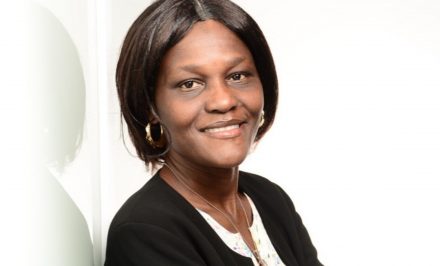 Cameroon : Dr. Yasmine Ndassa, the research scientist turned data storyteller
Cameroon : Dr. Yasmine Ndassa, the research scientist turned data storyteller
 Julien Ngum Che : advocating for the rights of displaced women and youth in Cameroon
Julien Ngum Che : advocating for the rights of displaced women and youth in Cameroon
 Chilufya Mutale Mwila, the Zambian entrepreneur driving financial inclusion across Africa
Chilufya Mutale Mwila, the Zambian entrepreneur driving financial inclusion across Africa
 Wangari Muchiri, the Kenyan engineer committed to accelerating the ecological transition in Africa
Wangari Muchiri, the Kenyan engineer committed to accelerating the ecological transition in Africa


Judith Sedaminou Gbenoudon is the Director of the Laboratory for Immunology of Contagious and Infectious Diseases at the University of Abomey-Calavi in Benin. She conducts research on the immune system to improve the diagnosis and treatment of diseases, particularly in Africa. She is the 2018 recipient of the TWAS-Abdool Karim Award for her research in improving the diagnosis of severe malaria disease.
It was at the age of 12, just after her first visit to a gynaecologist, that she became passionate about science, and more specifically, medicine. She dreamt of becoming a doctor and helping to improve women’s health care.
After her secondary education, she enrolled in the biochemistry department of the University of Benin, the current University of Abomey-Calavi. During her degree course, she discovered the immune system, which she became passionate about. After her degree, she flew to France, where she took a master’s degree at the University of Technology of Compiègne. At the same time, she completed internships at Imperial College in London and at the Biomedical Primate Research Centre in the Netherlands. She continued with a PhD at the University of Hamburg in Germany and devoted her work to immunology, a branch that studies the body’s defence against pathogens, bacteria, viruses, and parasites.
Promoting a better understanding of the immune system
For the scientist, immunology is the be-all and end-all. Through her work, she aims to provide answers to several challenges related to the diagnosis and treatment of diseases, particularly in Africa. Her research has enabled her to make a number of scientific discoveries, thus contributing to the advancement of knowledge about the human immune system.
As part of her doctoral research, she succeeded in describing and highlighting cells that are very important in the body’s defence, namely regulatory lymphocytes, which had previously gone unnoticed in research. This is a major discovery since these cells play an important role in preventing autoimmunity, a mechanism in which antibodies become hyperactive and attack healthy body tissues.
Improving the diagnosis and treatment of malaria in children
In addition to her research on the immune system, she carried out work on malaria. She focused on children with the disease who were admitted to hospital and who died within a short time.
Her work enabled her to show that these children were co-infected by malaria and candida albans, a pathogenic yeast that causes a high production of antibodies that become harmful to the child’s body. Her research also shows that children with this co-infection were usually those who had received regular treatment for intestinal worms with antibiotics.
She further discovers that the conventional pharmaceutical treatments for this co-infection had serious side effects, which led most of the time to the death of these children. This discovery allows her to conclude that, in cases of malaria-candida co-infection in children, doctors should favour traditional treatments with fewer harmful effects. A real contribution to improving the diagnosis and treatment of malaria in Africa.
Judith Sedaminou Gbenoudon was one of the first women to create a research laboratory at the University of Abomey-Calavi. In addition to her research work, she carries out capacity-building activities in article writing and scientific projects.
In 2018, she won the TWAS-Abdool Karim Award, which honors women scientists in low-income countries for their achievements in biological sciences.